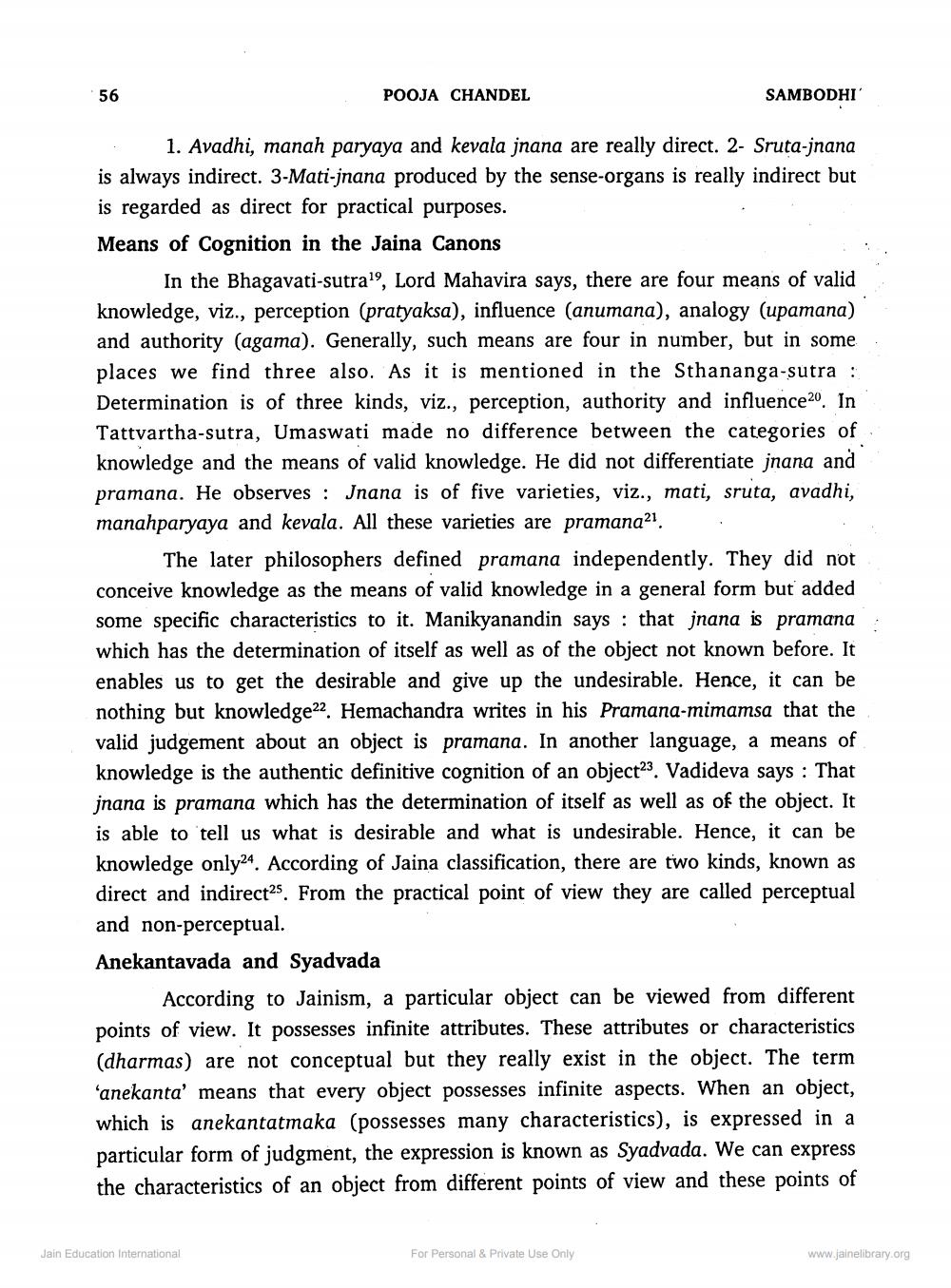________________
56
POOJA CHANDEL
SAMBODHI
1. Avadhi, manah paryaya and kevala jnana are really direct. 2- Sruta-jnana is always indirect. 3-Mati-jnana produced by the sense-organs is really indirect but is regarded as direct for practical purposes. Means of Cognition in the Jaina Canons
In the Bhagavati-sutra", Lord Mahavira says, there are four means of valid knowledge, viz., perception (pratyaksa), influence (anumana), analogy (upamana) and authority (agama). Generally, such means are four in number, but in some places we find three also. As it is mentioned in the Sthananga-sutra : Determination is of three kinds, viz., perception, authority and influence20 In Tattvartha-sutra, Umaswati made no difference between the categories of knowledge and the means of valid knowledge. He did not differentiate jnana and pramana. He observes : Jnana is of five varieties, viz., mati, sruta, avadhi, manahparyaya and kevala. All these varieties are pramana2. .
The later philosophers defined pramana independently. They did not conceive knowledge as the means of valid knowledge in a general form but added some specific characteristics to it. Manikyanandin says : that jnana is pramana which has the determination of itself as well as of the object not known before. It enables us to get the desirable and give up the undesirable. Hence, it can be nothing but knowledge22. Hemachandra writes in his Pramana-mimamsa that the valid judgement about an object is pramana. In another language, a means of knowledge is the authentic definitive cognition of an object23. Vadideva says : That jnana is pramana which has the determination of itself as well as of the object. It is able to tell us what is desirable and what is undesirable. Hence, it can be knowledge only24. According of Jaina classification, there are two kinds, known as direct and indirect25. From the practical point of view they are called perceptual and non-perceptual. Anekantavada and Syadvada
According to Jainism, a particular object can be viewed from different points of view. It possesses infinite attributes. These attributes or characteristics (dharmas) are not conceptual but they really exist in the object. The term 'anekanta' means that every object possesses infinite aspects. When an object, which is anekantatmaka (possesses many characteristics), is expressed in a particular form of judgment, the expression is known as Syadvada. We can express the characteristics of an object from different points of view and these points of
Jain Education International
For Personal & Private Use Only
www.jainelibrary.org




